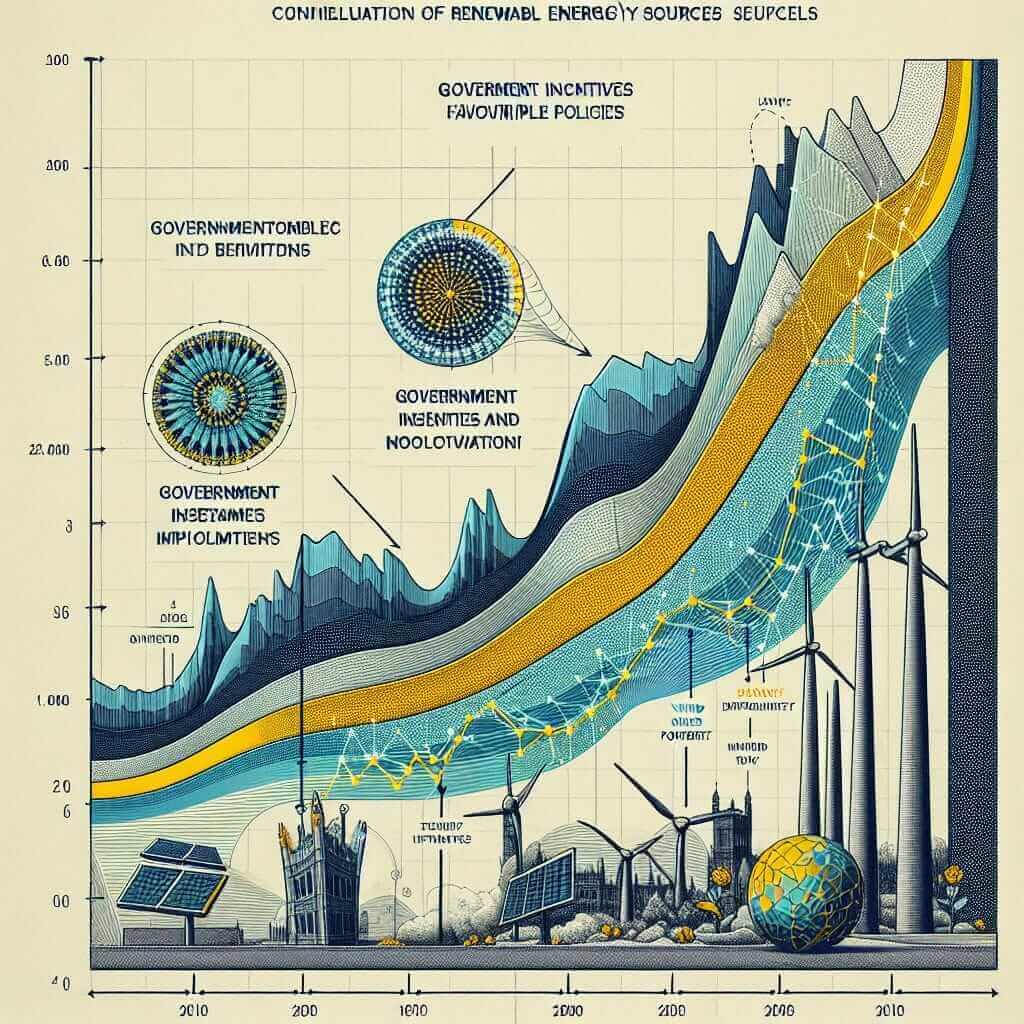The role of public policy in addressing climate change is a critical subject, frequently featured in IELTS Writing Task 2 prompts. Candidates preparing for the IELTS exam often encounter questions about governmental policies, international agreements, and their impacts on global warming and environmental sustainability. Recognizing the importance of this topic, I will create three sample prompts based on the keyword “The role of public policy in addressing climate change”:
- Some people believe that individual actions are insufficient to tackle climate change and that government policies play a more significant role. To what extent do you agree or disagree?
- Discuss the role of international agreements and local government policies in combating climate change.
- Compare the effectiveness of public policies and individual efforts in addressing climate change.
Main Content
1. Choose one prompt and create a model essay example
We will select the first prompt to develop our model essay:
Prompt: Some people believe that individual actions are insufficient to tackle climate change and that government policies play a more significant role. To what extent do you agree or disagree?
2. Analyze the prompt
This prompt asks the writer to express their opinion on the importance of governmental policies compared to individual actions in addressing climate change. The essay should be structured to provide balanced or one-sided views, supported by reasons and examples.
3. Write the model essay
Climate change is an increasingly pressing issue that requires urgent and effective action. While individual efforts are often highlighted as a means to combat climate change, some argue that government policies are more critical in addressing this global crisis. In my opinion, while individual actions are valuable, robust public policies are indispensable to achieving substantial and lasting progress.
Firstly, governmental policies have the power to regulate industries that are major contributors to greenhouse gas emissions. For instance, legislation that imposes limits on carbon emissions can compel businesses to adopt cleaner technologies and practices. This broad level of control is something individual actions cannot easily achieve. Furthermore, governments can implement incentives for renewable energy projects, encouraging the shift from fossil fuels to more sustainable energy sources. The United Kingdom’s introduction of subsidies for solar and wind energy projects is a testament to the positive impact of governmental intervention.

Secondly, international agreements facilitated by governments play a significant role in uniting countries to combat climate change. The Paris Agreement, for example, brings together nations with a collective goal to limit global temperature rise. Such coordinated efforts are crucial as climate change is a transnational issue that no single country can tackle in isolation. These international accords set targets and hold countries accountable, demonstrating the influence of public policy on a global scale.
However, it is important to acknowledge that individual actions do contribute to the battle against climate change. Personal choices, such as reducing plastic use, conserving energy, and advocating for sustainable practices within local communities, set a precedent and build societal pressure for more comprehensive public policies. Nevertheless, without overarching governmental frameworks to guide and amplify these efforts, individual actions alone struggle to address the magnitude of the problem.
In conclusion, while individual efforts are commendable and essential, government policies are the cornerstone of substantive climate action. Regulations on industrial emissions, governmental incentives for renewable energy, and international agreements illustrate the significant role that public policies play in addressing climate change. Thus, I firmly believe that effective governmental intervention is paramount in the fight against climate change.
(320 words)
4. Key considerations when writing on this topic
Vocabulary and Grammar Tips:
- Use academic vocabulary specific to the environment and policy sectors (e.g., “regulate,” “incentives,” “substantive”).
- Employ complex sentence structures to show grammatical range (e.g., “While individual efforts are valuable, robust public policies are indispensable…”).
- Balance your argument by discussing both viewpoints, even if you lean towards one.
Important Vocabulary:
- Indispensable (adj) /ˌɪn.dɪˈspen.sə.bəl/ – so good or important that you could not manage without it.
- Mitigation (n) /ˌmɪt.ɪˈɡeɪ.ʃən/ – the action of reducing the severity, seriousness, or painfulness of something.
- Incentive (n) /ɪnˈsen.tɪv/ – something that encourages a person to do something.
- Legislation (n) /ˌledʒ.ɪˈsleɪ.ʃən/ – laws, considered collectively.
- Precedent (n) /ˈpres.ɪ.dənt/ – an earlier event or action that is regarded as an example or guide to be considered in subsequent similar circumstances.
5. Conclusion
To summarize, the interplay between individual efforts and public policy in addressing climate change is crucial, yet governmental intervention stands out as the most impactful. Future IELTS aspirants might encounter various related prompts, and understanding the pivotal role of public policy can aid in crafting well-supported essays. Additional topics might include:
- Examine the impact of technological innovation on government policies related to climate change.
- Discuss the role of public policy in addressing environmental sustainability in urban areas.
Ensuring a well-rounded knowledge of such subjects can significantly enhance one’s ability to succeed in the IELTS Writing Task 2.
For further practice, consider visiting related resources: